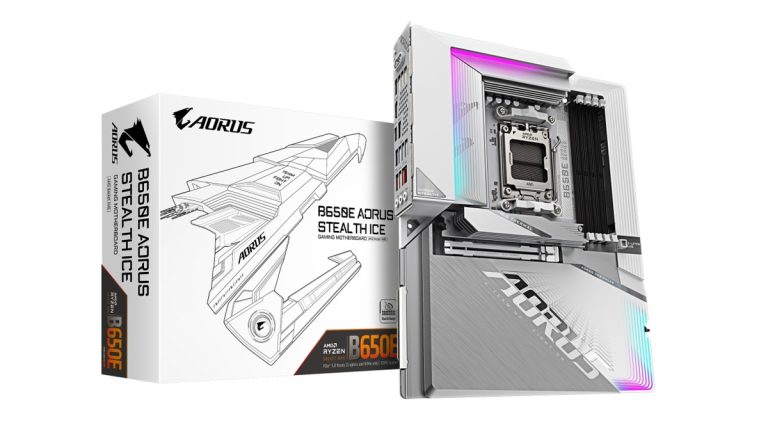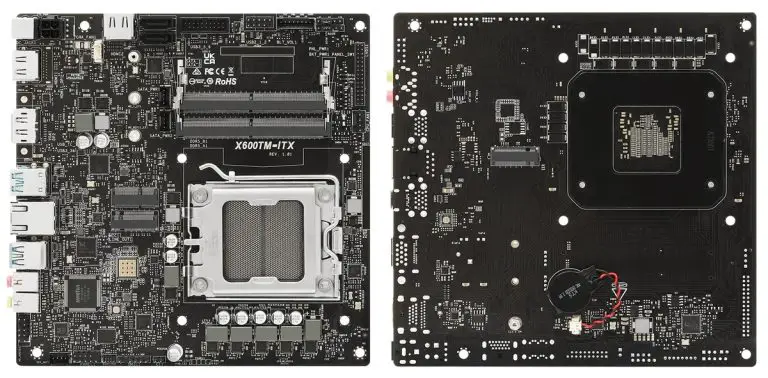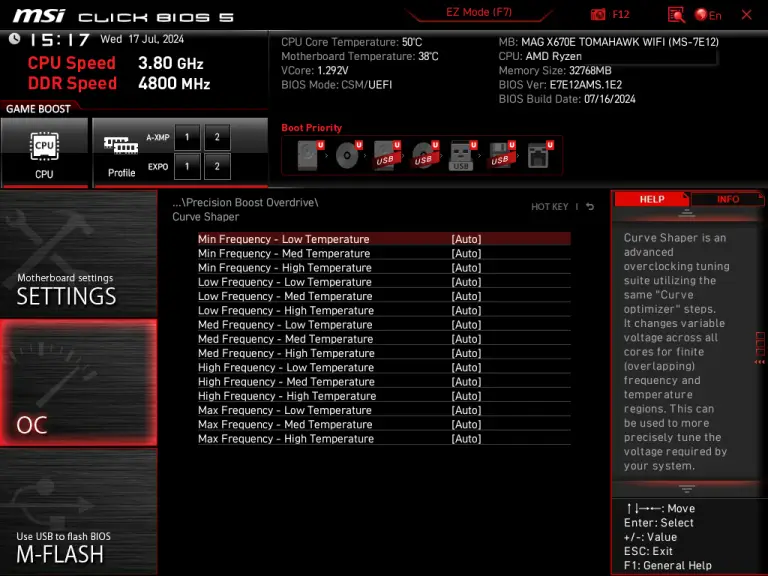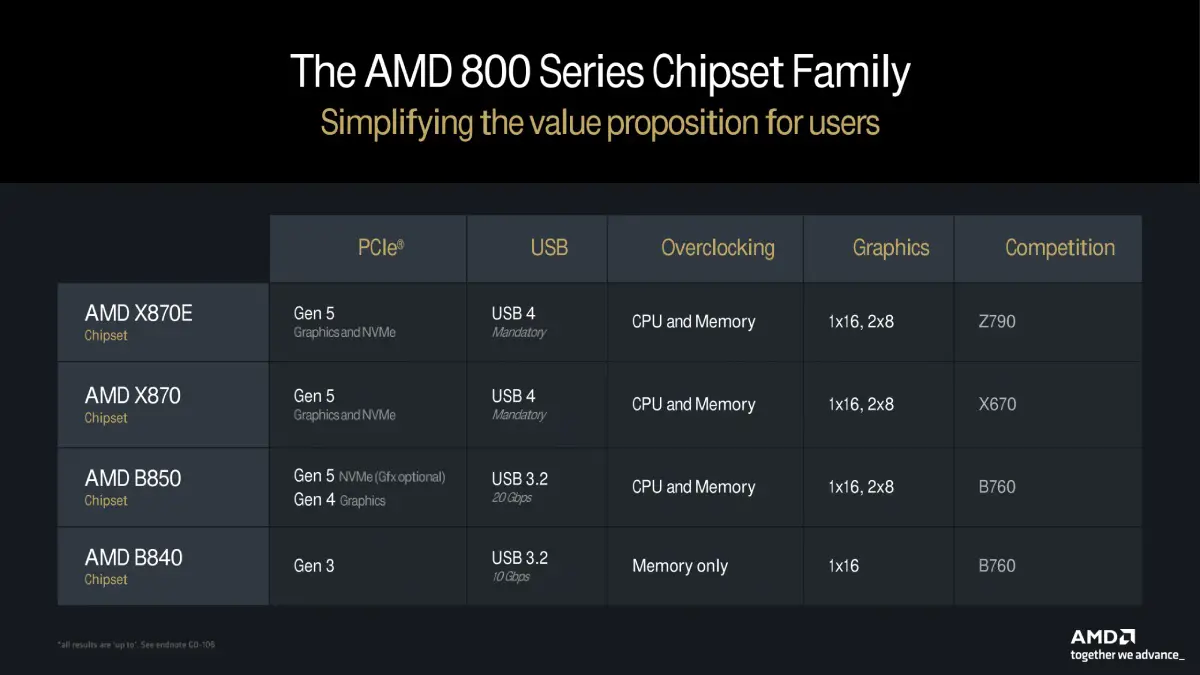
In early June, AMD unveiled the Zen 5 architecture-based Ryzen 9000 series desktop processors, Granite Ridge, alongside the AMD 800 series motherboards. Among them, the high-end X870E and X870 models come standard with USB4 ports, while the B850 and B650E share similar specifications. The newly introduced B840, however, boasts relatively lower specifications, suggesting AMD’s intention to further expand its mid-to-low-end product line, offering consumers a wider array of choices.
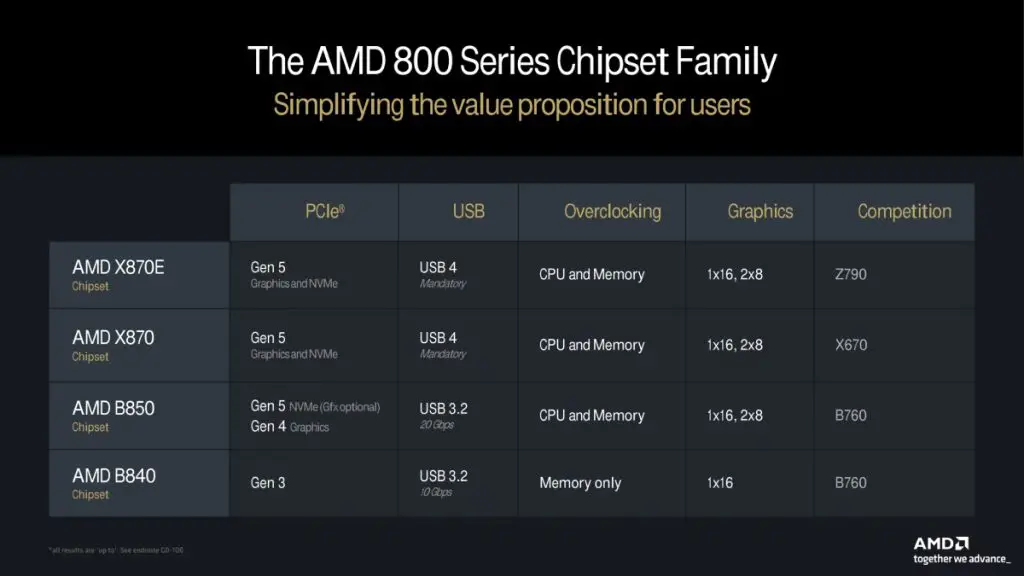
Wccftech reports that AMD has provided a simplified overview table for the upcoming 800 series chipsets, supplementing and confirming the detailed information previously released by TechPowerUp regarding the AMD 800 series motherboards.
The X870 and X870E, respectively mirroring AMD’s own X670 and Intel’s Z790, both offer PCIe 5.0 lanes, support for USB 4, CPU and memory overclocking, and the ability to split the graphics card’s PCIe x16 lanes into two x8 lanes.
The B850 and B840, on the other hand, are comparable to Intel’s B760. While earlier specifications for the B850 indicated that USB4 and the PCIe 5.0 M.2 port were optional, with the PCIe x16 interface being 5.0, the latest information reveals that PCIe 5.0 lanes will be prioritized for the M.2 port, with motherboard manufacturers having the flexibility to allocate them to the graphics card as needed. The USB interface description has also been modified from optional USB 4 support to 20Gbps USB 3.2 support, suggesting that it might not be a common choice for most users. Nevertheless, CPU and memory overclocking, as well as graphics card lane splitting, are confirmed features.
The B840 chipset itself only supports PCIe 3.0 lanes, making it quite entry-level for 2024 standards. Additionally, it supports 10Gbps USB 3.2 and only allows for memory overclocking. Its appeal may hinge on the PCIe lanes provided by the CPU to bolster the motherboard’s interface expandability.
Rumors suggest that new motherboards equipped with the X870 and X870E chipsets will be launched on September 31st, two months after the Ryzen 9000 series processors. However, the Ryzen 9000 series can be used with existing AM5 motherboards, so this shouldn’t pose a significant issue for potential buyers.
